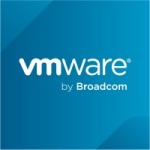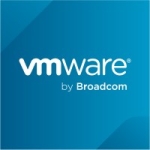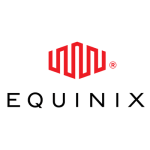We have some workloads that we want to get from on-premises to the cloud, and we're doing some test cases on the migrations of our virtual machines to NC2. That's part of the plan (especially for the G4 nodes, which are out of support).
We're looking into the pros and cons of replacing the actual hardware versus moving it to a Nutanix cloud.
Having a single pane of glass where you can have both your on-prem and anything else that you spin up within AWS is useful. The integration within Prism Central is great.
We're looking at it for our application team so that they can have choices and allow them to use cloud clusters.
We've had some challenges with the implementation. We had to go through all the necessary setups, and we had some challenges in terms of integrating our current environment into the Nutanix cloud.
We also worked with some NC2 experts, and we've gotten over most of the challenges. Now, we are able to set up the cluster on AWS accurately. The next step is to get fully integrated with Prism Central so that we can continue with the POC test.
We're in the POC stage. Currently, I've used the solution for less than six months during the trial period.
We've tried to run it on a weekend, and it didn't go down.
We have experienced an issue with hibernating the app tool cluster. There may be a problem that's being worked through at Nutanix. After having an issue with hibernating, we've had to terminate a cluster during the POC. Other than that, everything went smoothly when we did the POC.
As far as scalability is concerned, you could easily scale up or horizontally. You can easily add nodes or recreate some other clusters as needed. It takes about 60 to 90 minutes to create a cluster.
We haven't really dealt with technical support. We're getting all the help we need in terms of standing up the clusters and dealing with internal security hurdles. Right now, we're trying to integrate with Prism Central and open some firewall support. We are as well working with an https://www.peerspot.com/produ... technical expert for those purposes.
We previously used a different process altogether.
It's too early to measure any ROI as we are in POC mode.
The solution has been more costly at this point. We do not see any cost savings.
We did evaluate other options, including NC2 on Azure. We wanted more maturity, and AWS has always been our primary cloud vendor. We are looking to have workloads on Azure and Google one day too.
We're still in the POC stage. Our biggest hurdle is the cloud. It seems to cost more to run clusters in the AWS cloud. We do have some discounts on a corporate level; however, apples to apples, it seems to be better just to replace the actual hardware on-prem versus migrating workloads off of NC2. We're still looking at cost benefits. We want to give our clients both options and have the flexibility to run on a hybrid approach.
As we are at the POC stage, so we haven't yet eliminated cloud waste just yet. That would be one of the test cases we are looking into.
In terms of managing applications and data, we're still testing it. We're still looking at how it performs on-prem versus the cloud. We're looking into scalability as well as that would be a benefit of moving to the cloud.
If someone is interested in migrating workloads directly onto the cloud and running them natively instead of using NC2, they really have to look into the design of the application. Some workloads need to have some services on AWS as well. When that's the case, it is best to use NC2 features.
I'd rate the solution a seven out of ten. There are a few improvements to work on. For example, cluster hibernation needs work. However, the solution is very user-friendly, and it's simply to spin up clusters.
















